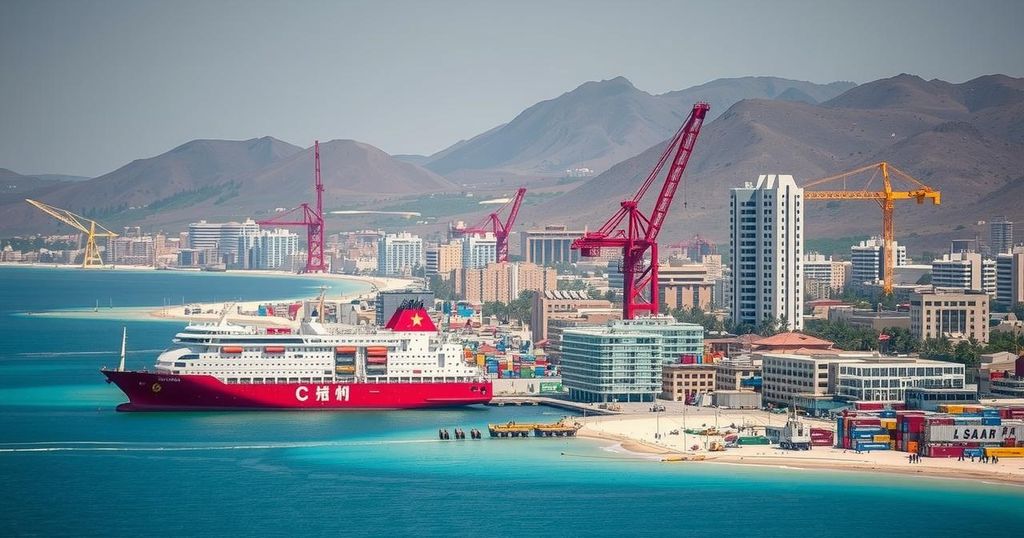Navigating Challenges: Chinese Investments in Djibouti Amid Red Sea Tensions

Djibouti’s strategic location has attracted substantial Chinese investment, but limitations in manufacturing and environmental challenges might pose risks. The acquisition of the Djibouti Salt Investment Company illustrates China’s commitment, yet the ongoing geopolitical tensions in the Red Sea could impact their business landscape.
The strategic positioning of Djibouti has rendered it a pivotal hub for Chinese investment, particularly under the auspices of the Belt and Road Initiative. Chinese enterprises have engaged in various sectors, including port development, transportation, and minerals extraction. However, it is critical to note that Djibouti’s manufacturing capabilities are limited, and its harsh climate, characterized by vast desert areas and volcanic plateaus, constrains agricultural productivity to a mere 1 percent of GDP. Moreover, the reliance on imports poses a substantial risk for local economic stability.
Djibouti’s natural resources, particularly Lake Assal, boast the largest salt reserve globally. Despite this remarkable asset, its full potential remains untapped, stifling economic growth opportunities for both local populations and foreign investors. In 2015, the China Communications Construction Company acquired a significant stake in an American salt enterprise, subsequently revamping it into the Djibouti Salt Investment Company. This strategic move exemplifies China’s commitment and adaptability within Djibouti, but it also brings into focus the vulnerabilities tied to the region’s geopolitical dynamics and environmental challenges.
Djibouti’s geographical significance as a gateway to international shipping lanes has attracted substantial Chinese investment over recent years. The Belt and Road Initiative plays a significant role in enhancing economic ties between China and this East African nation. Nevertheless, Djibouti’s geographical and climatic limitations, alongside its pre-existing economic landscape, create challenges that merit careful consideration. While the investments promise growth, the geopolitical tensions in the Red Sea may cast uncertainty over the future of these ventures.
In summary, while Chinese investments in Djibouti have the potential to promote significant development aligned with the Belt and Road Initiative, numerous challenges persist. The country’s limited local production capabilities, reliance on imports, and the geopolitical instability in the Red Sea region could complicate the landscape for Chinese enterprises operating there. A comprehensive assessment of these factors is essential for sustaining beneficial growth and development in the region.
Original Source: www.scmp.com








